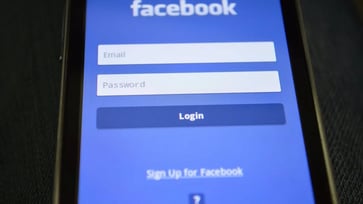Another sneaky scam: Your email didn't expire, but it's not legitimate.
You are being targeted by another phishing scam.

Phishing scams are becoming more common and sophisticated, making it difficult to ignore them.
An email may arrive claiming that your Microsoft 365 account will expire today, but be cautious as this could be a sneaky tactic used by an impersonating help desk or support team.
Don't fall for scams! Recognize them and protect yourself. Let's act quickly to keep you safe.

How can you tell if it is a scam email?
Scammers are skilled at making their fraudulent emails look professional and legitimate, often using legitimate contact information such as helpdesk or IT department names to deceive victims.
Examining the sender's email address, you can observe that the domain name in the "From" field is different and random. For instance, if the sender's name is "helpdesk," clicking on the contact information will reveal a domain address from @magicpin.in, @gmail.com, or @hotmail.com. If the email is supposedly from Microsoft, the domain should be microsoft.com.

How are victims exploited by these types of scams?
Phishing email scams can be a slippery slope to identity theft and fraud, as scammers use them to take advantage of their victims in various ways.
Validating an email account: Opening or interacting with an email (clicking a link or responding) can confirm that the email address is active. Scammers often target random email addresses obtained from data breaches, the dark web, or data harvesting.
Responding to an email or using any other contact information provided to "reinstate" your account will confirm that the email address they contacted is active, and they may attempt to sell you financial and personal information. If you call any phone number they provide, they will link your phone number with your email address to keep updating their information on you.
Malware distribution: Emails may contain buttons, links, or attachments that can download malware or viruses to your device if clicked.

What should you do if you receive these types of phishing emails?
If you suspect an email is a phishing scam, there are a few easy steps you can take.
To safeguard yourself from malicious links that install malware and potentially access your private information, it is recommended to have antivirus software installed on all your devices. This protection can also alert you to phishing emails and ransomware scams, keeping your personal information and digital assets safe. For the best 2024 antivirus protection winners for your Windows, Mac, Android, and iOS devices, get my picks.
Avoid contacting these scammers via email or phone as it may verify your email address, increasing the likelihood of receiving more scam messages.
By blocking and reporting a phishing email, you can safeguard yourself and others by notifying your email provider of malicious activity.
Verify the legitimacy of an email by accessing your account directly to obtain accurate information and avoid falling for fake notifications.
Enabling two-factor authentication for your account increases security by adding an additional layer of protection, making it more difficult for scammers to access your account even if they have your password.
Consider investing in personal data removal services to minimize the risk of identity theft and scams based on harvested data. While no service can guarantee complete removal, having a removal service can help automate the process of removing your information from hundreds of sites over a longer period of time. Here are my top picks for data removal services.
Kurt’s key takeaways
Staying informed and vigilant is crucial in combating the increasingly sophisticated phishing scams. By adopting good digital habits and following our tips, you can confidently navigate the online world. It's important to remember that awareness is your best defense, so share this knowledge with friends and family to protect everyone from these deceptive tactics.
Can you share the most unusual or clever phishing attempt you've encountered, and how you recognized it as a scam? Please write to us at Cyberguy.com/Contact.
To receive my tech tips and security alerts, sign up for my free CyberGuy Report Newsletter at Cyberguy.com/Newsletter.
Let us know what stories you'd like us to cover.
Follow Kurt on his social channels:
Answers to the most asked CyberGuy questions:
New from Kurt:
Copyright 2024 CyberGuy.com. All rights reserved.



















